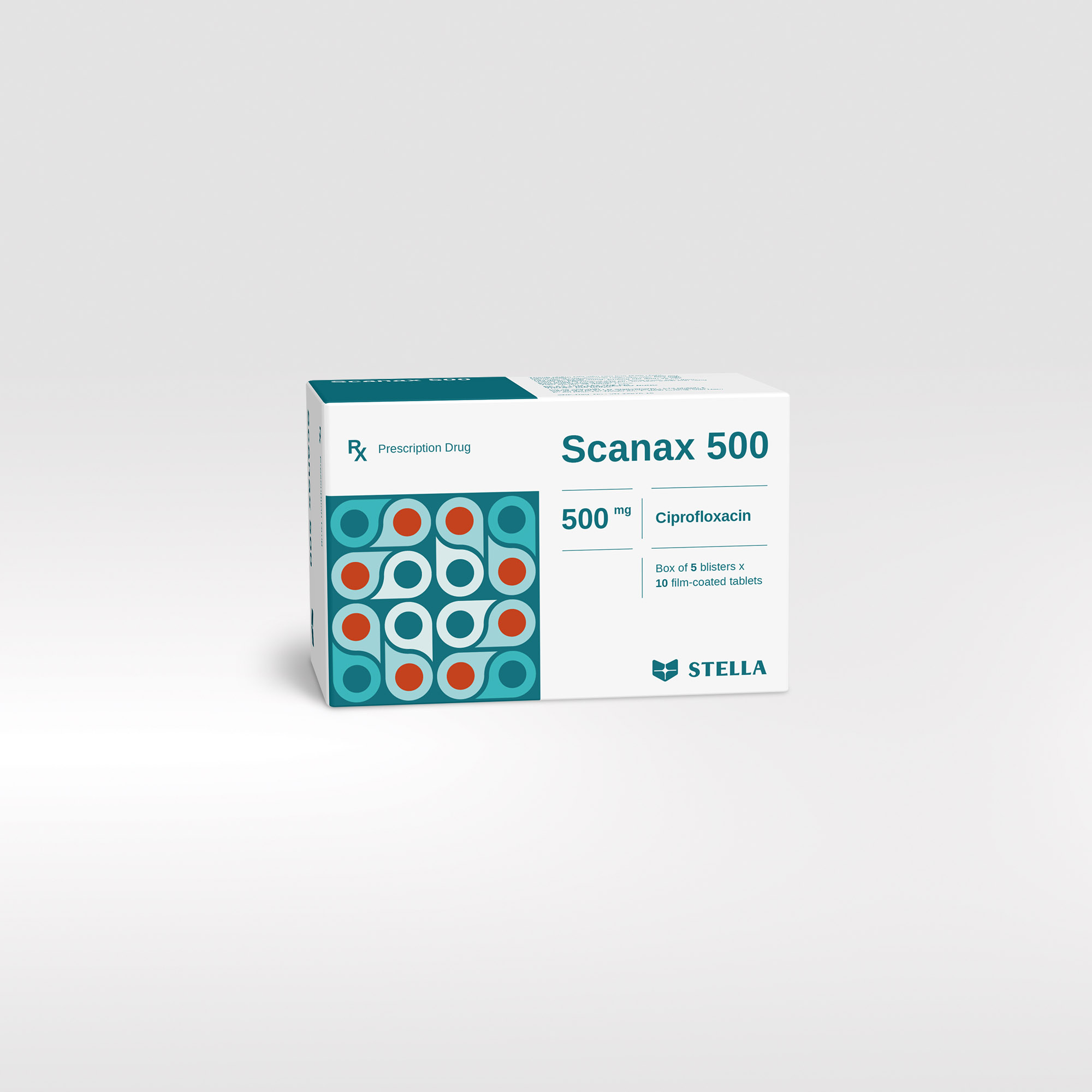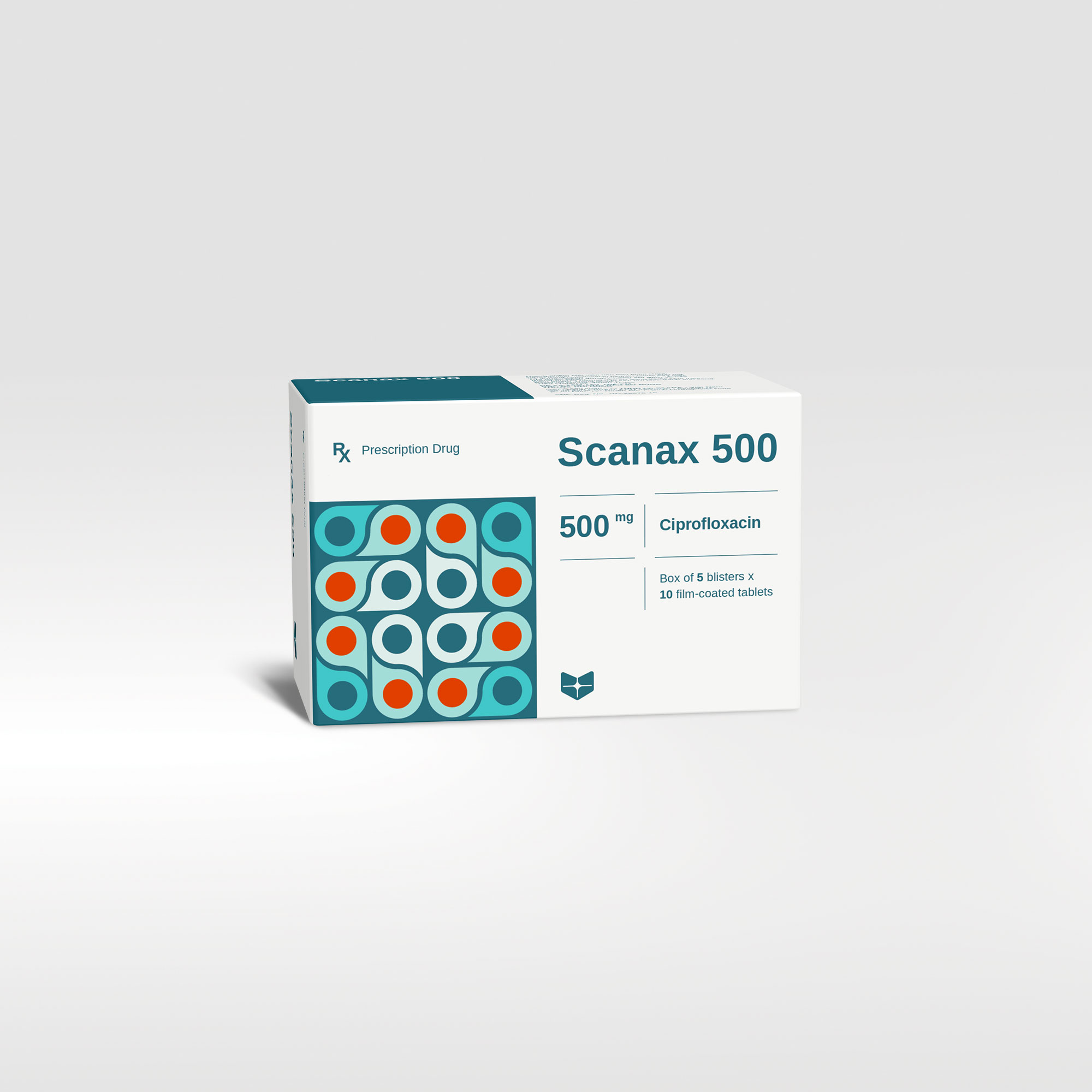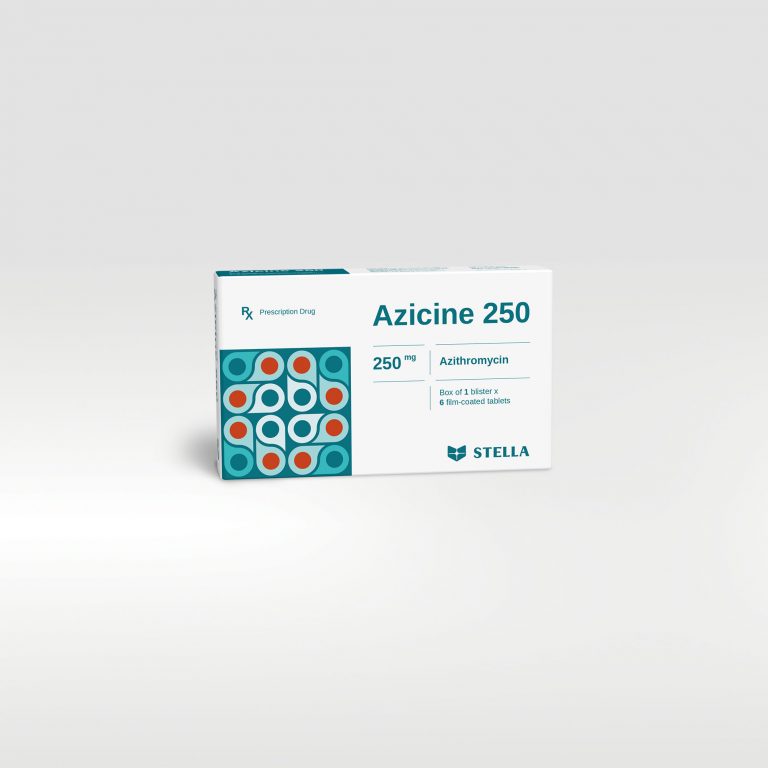Indications:
- Upper urinary tract infection.
- Uncomplicated gonorrhea.
- Chronic prostatitis.
- Infections in skin, soft tissues and bone.
- Severe bacterial enteritis.
- Prophylaxis against meningococcal diseases.
- Prophylaxis against Gram (-) infections in immune suppressed patients.
- Severe nosocomial infections (septicemia and treatment of infections in immune suppressed patients).
- Uncomplicated urinary tract infections.
- Acute bacterial exacerbations of chronic bronchitis.
- Acute bacterial sinusitis.
Dosage:
The treatment should be continued for at least 48 hours, after all disease symptoms have been disappeared. Period of treatment is usually 1 – 2 weeks. In cases of bone or joint infection, the ciprofloxacin treatment must be continued for 4 – 6 weeks or more long. Infectious diarrhea can be treated within 3 – 7 days or in a shorter time.
- Upper urinary tract infection: 500 mg twice a day.
- Uncomplicated gonorrhea: 500 mg, as a single dose.
- Chronic prostatitis: 500 mg twice a day.
- Infections in skin, soft tissues and bone: 500 mg twice a day.
- Severe bacterial enteritis: Treatment: 500 mg twice a day; prophylaxis: 500 mg once a day.
- Prophylaxis against meningococcal diseases: Adults and children > 20 kg: 500 mg, single dose.
- Prophylaxis against Gram (-) infections in immune suppressed patients: 500 mg twice a day.
- Severe nosocomial infections (septicemia and treatment of infections in immune suppressed patients): 500 mg twice a day.
- Uncomplicated urinary tract infections: 250 mg twice a day, for 3 days (use another dosage form).
- Acute bacterial exacerbations of chronic bronchitis: 500 mg twice a day, for 7 – 14 days.
- Acute bacterial sinusitis: 500 mg twice a day, for 10 days.
Doses should be reduced in patients with severe renal impairment.
Usage:
Scanax 500 is administered orally, should be given 2 hours after a meal. The patient should drink fluids liberally and not take antacids within 2 hours after digestion.



















